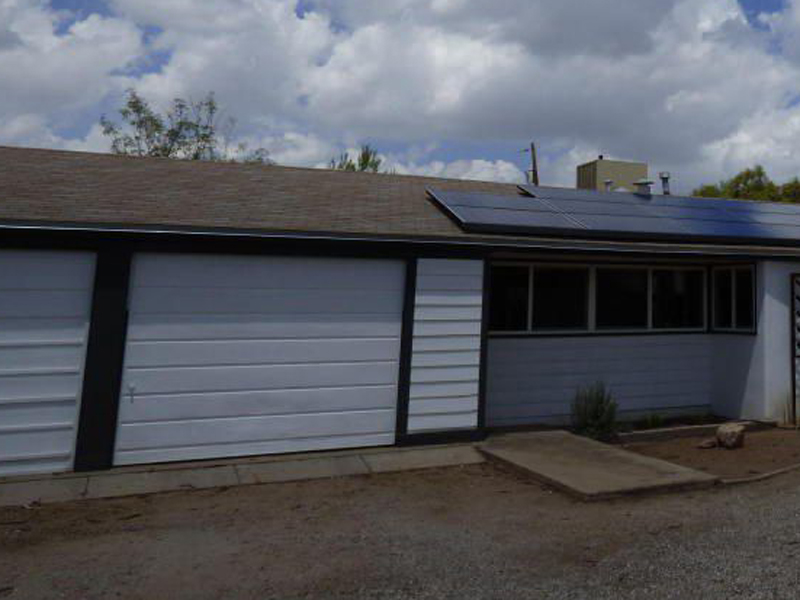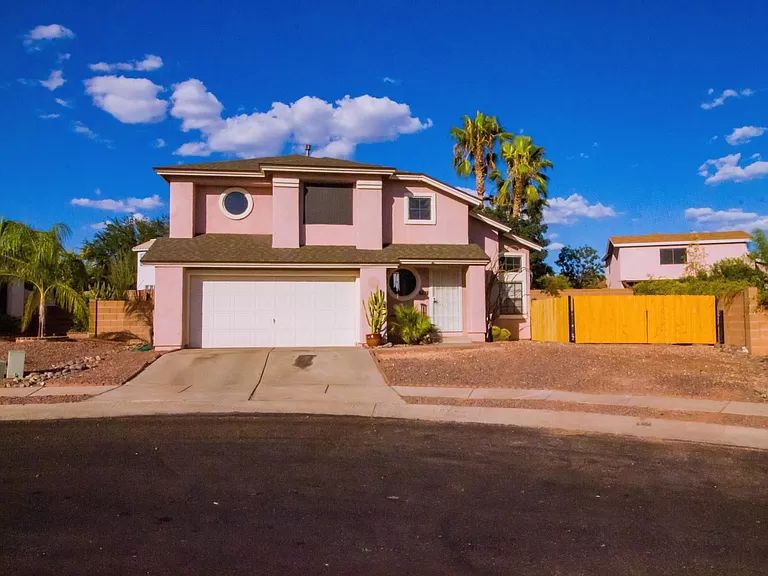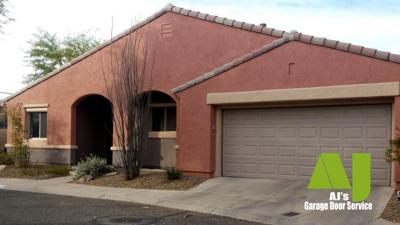Is Your Garage Door Stuck? Below's What to Do Initial
When your garage door won't open, begin with these essential safety and security checks before attempting any repair services. Initially, make certain nobody is standing near the door and that vehicles are clear of the opening. Search for noticeable signs of damages like broken panels, bent tracks, or hanging cable televisions. If you see a snapped spring or seriously damaged elements, stop quickly and call an expert—-- these repairs call for customized tools and expertise to manage securely.

Inspect These 6 Things Before Calling a Specialist
Before thinking you require costly repairs, go through this quick analysis list that fixes most garage door problems:
-
Source of power: Validate the opener is plugged in and the outlet is working
-
Remote batteries: Replace dead batteries in your remote
-
Hand-operated lock: Inspect if somebody accidentally engaged the hands-on lock
-
Blockages: Seek debris obstructing the door's course or sensing units
-
Emergency release: Make certain the red emergency cable hasn't been drawn
-
Circuit breaker: Confirm the garage circuit hasn't tripped
These straightforward checks settle around 70% of garage door concerns without requiring specialist intervention.
10 Usual Factors Your Garage Door Will Not Open
Comprehending why your garage door opener isn't functioning helps you pick the appropriate option. Right here are one of the most frequent causes homeowners experience:
Dead remote batteries represent the easiest solution—-- when batteries die, the remote can't send signals to the opener. Power interruptions or stumbled breakers cut electrical energy to the electric motor. Damaged springtimes avoid the door from lifting properly and need instant specialist focus. Sensor imbalance causes safety and security systems to block door procedure. Track blockages quit rollers from moving efficiently. Motor overload triggers automatic shutoffs when the opener identifies resistance. Limitation switch troubles perplex the opener regarding door placement. Cable damage interrupts the lifting device. Weather-related issues affect door movement throughout severe temperatures. Part wear from age progressively decreases system performance.
Trouble # 1: Dead Remote Batteries
When your wall switch functions but your remote does not, dead batteries are normally the culprit. Most garage door remotes use either 3-volt lithium or 12-volt alkaline batteries. Get rid of the back cover of your remote and check the battery type. Replace with fresh batteries and examine the remote. If it still does not work, you may require to reprogram it to your opener. Consult your opener's manual for particular reprogramming instructions, as the process varies by manufacturer.
Trouble # 2: Power Supply Issues
Garage door power troubles usually stem from loosened connections or stumbled circuits. Inspect that the opener is firmly plugged into its electrical outlet—-- resonance can loosen links gradually. Examine the electrical outlet with an additional device to verify it's functioning. Examine your home's breaker box for tripped circuits, especially if you have actually experienced tornados or power fluctuations. GFCI electrical outlets may have stumbled and require resetting. If the opener has power yet will not respond, the concern most likely lies elsewhere in the system.
Problem # 3: Broken or Damaged Springs
Broken garage door springtimes are amongst the most unsafe elements to manage. If you listen to a loud bang from your garage or observe the door feels extremely heavy when trying to lift by hand, a spring has likely snapped. Torsion springs run horizontally above the door, while extension springtimes rest on either side. Never ever try spring fixings on your own—-- these parts keep tremendous tension that can create serious injury or fatality. Specialist substitute usually sets you back $150-$300 but ensures your security.
Trouble # 4: Blocked Safety And Security Sensors
Modern garage doors feature safety and security sensors that protect against closure when things are spotted. These sensing units can stop the door from opening if they're dirty, misaligned, or obstructed by particles. Clean sensing unit lenses with a soft cloth and make sure nothing blocks the unnoticeable light beam in between them. Check that sensors are effectively aligned—-- a lot of have get more info indicator lights that show connection condition. Sensor troubles often fix with simple cleaning and adjustment.
Problem # 5: Track Obstructions or Damages
Garage door tracks overview rollers as the door goes up and down. Dust, debris, old grease, or tiny things can jam the system. Inspect tracks visually and eliminate any type of blockages with a brush or fabric. Look for dents, flexes, or bending that can impede smooth operation. Minor track changes are possible for convenient property owners, yet significant damage requires specialist repair to avoid additional issues or security threats.
Problem # 6: Garage Door Opener Motor Issues
When the garage door motor runs yet the door doesn't relocate, a number of concerns could be liable. The motor might be strained and shutting down as a safety measure. Gear wear, especially in older devices, can protect against appropriate operation. Chain or belt drive issues influence power transmission. If you listen to unusual grinding, clicking, or humming sounds, quit using the opener promptly. Motor repair work frequently cost more than replacement, particularly for units over ten years old.
Step-by-Step DIY Troubleshooting Overview
Follow this systematic technique to garage door troubleshooting while focusing on safety throughout the process:
Step 1: Examine the wall surface switch first. If it functions however the remote does not, focus on remote concerns. If neither jobs, examine power supply.
Step 2: Examine the hands-on launch cord. If it's been drawn, the opener is disengaged from the door. Push the trolley back to reconnect.
Action 3: By hand check the door by disengaging the opener and attempting to lift the door by hand. It must move efficiently and remain in area when half-open.
Step 4: Evaluate noticeable components for damages, paying unique attention to springs, wires, and tracks.
Step 5: Examine all safety and security attributes consisting of sensing units, limit switches, and auto-reverse functions.
Action 6: Examination various controls (remote, wall switch, keypad) to separate the trouble resource.
Always use safety glasses and job handwear covers when carrying out inspections, and never effort fixings on springs or high-tension components.
When to Call an Expert vs. do it yourself Solutions

Understanding when to call a garage door professional versus attempting DIY repairs secures both your safety and your wallet. Deal with these concerns yourself: dead remote batteries, power supply problems, small track cleansing, sensor cleaning and placement, and basic lubrication.
Never ever try these repair services on your own: spring replacement or modification, cord fixings, significant track adjustment, electrical circuitry problems, opener motor substitute, or any kind of fixing entailing high-tension elements. Expert specialists have specialized tools, training, and insurance policy to take care of dangerous repair services safely.
Think about repair work costs versus substitute expenses, specifically for doors over 15 years old. Modern garage doors supply much better security functions, power performance, and integrity than older models.
Emergency Situation Garage Door Solutions
When you're stuck to a garage door that won't open and require prompt accessibility, follow these emergency situation procedures:
Handbook Procedure: Draw the red emergency situation launch cord to disengage the opener. This permits hand-operated procedure yet needs appropriate technique to prevent injury. Lift the door slowly and equally, making use of leg muscular tissues rather than your back. Many household doors weigh 100-150 pounds, making them workable for many adults.
Momentary Solutions: If the door opens up manually however won't keep up, prop it open with sawhorses or clamps—-- never ever use your body or lorries as assistances. For doors that won't close totally, guarantee the opening is protected if you have to leave.
Emergency situation Service: Numerous garage door business supply 24/7 emergency service for situations entailing safety and security issues, caught lorries, or total system failings. While much more costly than regular service calls, emergency situation repairs supply immediate solutions when required most.
Safety and security Caution: What NOT to Do
Garage door safety and security needs understanding harmful fixings that must never be tried by house owners:
Never try to repair springtimes—-- they keep enough power to create fatal injuries when they break or are incorrectly handled. Do not force a stuck door—-- this can damage the opener, tracks, or door panels, developing a lot more pricey troubles. Avoid bypassing safety and security features—-- sensors and auto-reverse devices prevent severe injuries and building damages.
Do not ignore unusual noises—-- grinding, scratching, or banging audios indicate problems that aggravate over time. Never ever use the door if wires are frayed or damaged—-- the door might fall unexpectedly. Don't attempt electric fixings unless you're a certified electrical expert—-- garage door openers use both 120V home current and low-voltage control circuits.

Preventative Upkeep to Avoid Future Problems
Normal garage door maintenance stops most common issues and extends system lifespan dramatically:
Month-to-month Jobs: Aesthetic examination of all components, examining auto-reverse safety and security functions, checking and tightening hardware, and cleansing tracks and sensing units.
Quarterly Tasks: Lubricating all moving get rid of suitable garage door lubricant, screening handbook procedure, and examining weather condition sealing.
Annual Jobs: Professional inspection and tune-up, spring modification if needed, and opener maintenance consisting of belt or chain change.
Seasonal Jobs: Getting ready for climate extremes, checking insulation, and readjusting opener setups for temperature level modifications.
Regular upkeep prices much less than emergency repair work and makes certain trusted operation year-round.
Garage Door Will Not Open Frequently Asked Questions
Why won't my garage door open with the remote but collaborates with the wall surface switch?
This usually suggests dead remote batteries, signal interference, or the need to reprogram the remote. Check batteries initially, then consult your opener guidebook for reprogramming directions.
Can I manually open my garage door if the power is out?
Yes, draw the red emergency situation launch cord to disengage the opener, after that raise the door by hand. Be planned for the door's full weight and lift with correct technique to prevent injury.
How do I recognize if my garage door springtime is broken?
Signs include a loud bang from the garage, the door sensation incredibly hefty when lifting manually, visible spaces in the spring coils, or the door just opening a couple of inches prior to stopping.
Is it safe to use my garage door if it will not open right?
No, partial procedure shows mechanical troubles that might intensify unexpectedly. Stop utilizing the door and have it inspected by a professional to stop further damages or injury.
What should I do if my garage door opens but won't shut?
Examine safety and security sensing units for blockages or misalignment, analyze the tracks for debris, and evaluate the auto-reverse function. If these do not resolve the trouble, consult an expert.
How much does it set you back to take care of a garage door that won't open up?
Prices vary extensively relying on the issue: battery substitute ($5-$10), professional medical diagnosis ($50-$100), springtime substitute ($150-$300), or opener replacement ($200-$500).
Can weather affect my garage door's ability to open?
Yes, extreme cold can enlarge lubricants and impact steel elements, while heat can create expansion problems. Most troubles resolve as temperatures stabilize, but relentless problems might require specialist interest.
Why does my garage door open a couple of inches then quit?
This typically suggests busted springs, limit switch troubles, or track blockages. The opener's safety attributes quit operation when resistance is spotted, avoiding damages to the motor or door.
Get Specialist Help for Facility Issues
When DIY troubleshooting does not fix your garage door troubles, specialist service technicians give the expertise and devices required for risk-free, enduring repair work. Qualified specialists diagnose problems precisely, utilize manufacturer-approved components, and provide guarantees on their work.
Specialist services include: detailed system assessments, springtime and wire substitute, opener repair work and substitute, track placement and substitute, electric troubleshooting, and emergency service calls.
What to anticipate: upfront pricing, certified and insured specialists, same-day service for many repair work, and follow-up upkeep suggestions.
A lot of garage door business use free quotes for major repair work and can offer prompt remedies for urgent problems impacting home security or car accessibility.
Obtaining Your Garage Door Working Again
A garage door that won't open up does not need to wreck your day or damage your spending plan. Beginning with easy troubleshooting actions like checking power, changing batteries, and examining for evident obstructions. Lots of issues have fast do it yourself remedies that recover typical procedure within minutes.
Nonetheless, identify when specialist assistance is needed—-- specifically for spring-related issues, electric troubles, or facility mechanical failings. Trying hazardous repairs yourself takes the chance of major injury and usually develops a lot more pricey issues.
Regular maintenance prevents most garage door concerns and guarantees trustworthy procedure for many years ahead. When troubles do occur, resolve them without delay to stay clear of even more pricey repair work and maintain your home's safety and security and ease. Whether you require an easy battery substitute or complete system overhaul, remedies exist to obtain your garage door functioning smoothly once more.